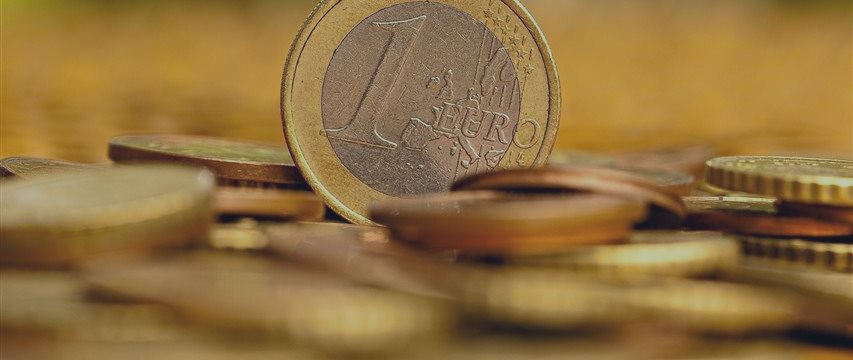
Gold declines after upbeat U.S. data; Euro higher after positive Draghi comments
Gold declined in early U.S. trading, as the yellow metal is once again impacted
the U.S. dollar index, which is higher on Wednesday.
Market players are now digesting ADP national employment report and trade data from the U.S., as well as ECB President Mario Draghi comments.
August Comex gold was last down $4.30 at $1,190.10 an ounce. July Comex silver was last down $0.144 at $16.66 an ounce.
The U.S. ADP national employment report was released and came in at up 201,000 in May, which was a slight miss to the downside, but just above expectations for an increase of 200,000. The economy created 165,000 jobs in April.
However, market participants showed little reaction to the report.
Separately, the U.S. Commerce Department said on Wednesday that the U.S. trade deficit narrowed by 19.2% in April to $40.88 billion from a deficit of $50.57 billion in March. Analysts had expected the U.S. trade deficit to narrow to $44.0 billion in April. U.S. exports edged up 1% to $189.91 billion in April, while imports declined 3.3% to $230.78 billion.
Traders and investors are awaiting the big U.S. economic report of the week to come Friday morning with the May U.S. jobs report from the Labor Department. The non-farm payrolls number is expected to come in at up 225,000 jobs in May.
Meanwhile, the ECB held a meeting in Frankfurt, Germany.
The ECB will maintain its bond buying program and other monetary policy measures and signaled that if any adjustments are likely, they will be in the form of more rather than less stimulus, says MarketWatch.
The comments were supportive for the euro which climbed 0.38% against the dollar with EUR/USD hitting 1.1195.
Here are key takeaways from the meeting, as collected by MarketWatch:
- The risks surrounding the economic outlook for the Eurozone are still seen to the downside, though less so since the ECB launched QE in March.
- The ECB left its macro-projections virtually unchanged. The ECB left its 2015 and 2016 GDP projections unchanged at 1.5% and 1.9% respectively and revised down its 2017 growth estimate down from 2.1% in the March forecasting round to 2.0% this month, reflecting weaker external stimulus from trade and the euro’s weakness.
- The ECB also sees annual HICP inflation unchanged at 1.5% in 2016 and 1.8% in 2017, despite higher expected oil prices since March, hence attributing its 3/10th of a percent upward revision to the 2015 HICP forecast down to temporary factors.
- The ECB also noted a “new normal” for market volatility, also quelling any speculation that the ECB can do much on the monetary front to compensate for market frictions due to structural market factors and tighter regulation.
- On Greece, the ECB remains inclined towards exercising extraordinary
caution to prevent an accidental Grexit and to give the Greek-EU
negotiations some breathing room, though with little hope of anything
but a last minute resolution.


